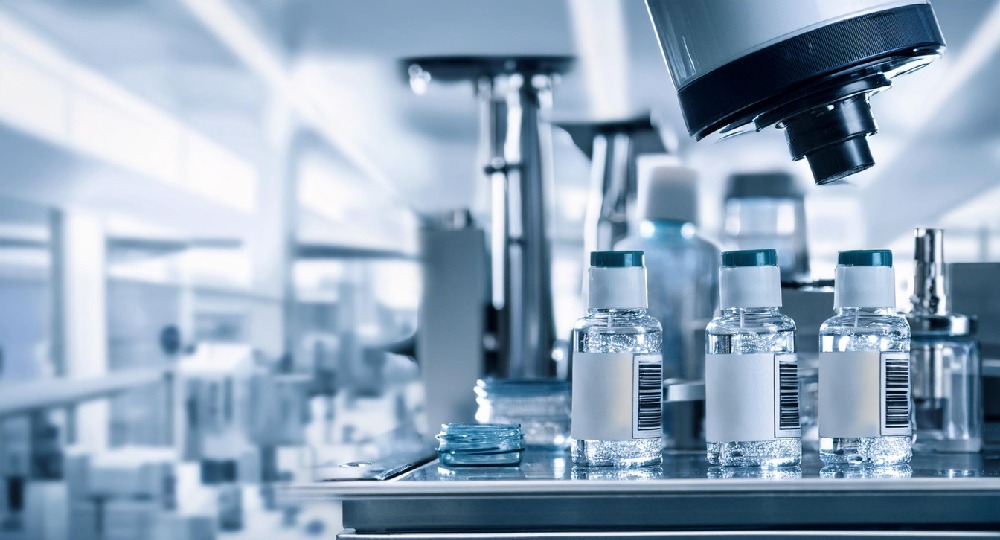Bioactive Superoxide Dismutase Enzyme for Cosmetics and Supplements
KEY INFORMATION
Life Sciences - Industrial Biotech Methods & Processes
TECHNOLOGY OVERVIEW
Superoxide dismutase (SOD) is a key antioxidant enzyme that protects cells from oxidative stress by catalysing the conversion of superoxide radicals into less harmful molecules like oxygen and hydrogen peroxide. These radicals are produced during normal cellular metabolism but can cause significant damage to DNA, proteins, and lipids if not neutralised. SOD helps maintain cellular integrity by reducing this damage, supporting overall health and longevity. Given its role in protecting cell damage, SOD has been utilised in skincare products, cosmeceuticals, dietary supplements, medical and therapeutic products as well as functional foods.
Current methods to produce SOD include natural extraction from plants, microbial fermentation and recombinant DNA technology. However, challenges such as low yield, variation in quality and concentration, high costs and regulatory issues still remain. The technology owner uses specific strains of microorganism and advanced biotechnology processes to produce SOD at high yields via fermentation in a sustainable and efficient manner. The enzyme is then extracted and concentrated during downstream processing. This technology could ensure a consistent and scalable supply of SOD for commercial use.
The company is seeking collaborations with skincare brands and cosmetic manufacturers interested in co-developing or licensing the technology for mass-market production and distribution.
TECHNOLOGY FEATURES & SPECIFICATIONS
- Sustainable and efficient manufacturing: Produced through microbial fermentation using specific and proprietary microorganisms to ensure high yield and purity.
- High enzyme activity: SOD activity is measured in units (U), typically ranging from 2,000 to 20,000 U/ml, depending on the downstream process, and intended application.
- pH stable: Active across a wide pH range, typically stable between pH 4.5 to 8.5, making it suitable for various formulations in supplements and cosmetics.
- Temperature stable: Optimal activity at temperatures between 20°C and 40°C. Some formulations may include stabilisers to maintain activity at higher temperatures.
- Water soluble: Allowing easy incorporation into aqueous formulations for cosmetics or supplements.
- Varied formats: Available in liquid concentrate or lyophilised (freeze-dried) powder form, depending on application and customer requirements.
- Long shelf life: Typically 12-24 months when stored at -20°C for lyophilised forms, with stability maintained through proper storage and packaging.
POTENTIAL APPLICATIONS
Beyond its biological role, SOD has applications in nutraceuticals and dietary supplements. It could be used to enhance the body's natural defence mechanisms, particularly in combating oxidative stress that contributes to aging and chronic conditions. SOD supplements have potential to reduce inflammation, improve immune function, and support joint health. Some studies suggest that SOD may help mitigate symptoms of conditions like arthritis, asthma, and exercise-induced muscle damage.
In addition to health supplements, SOD is also utilised in the cosmetic industry due to its skin-protective properties. It helps reduce the impact of environmental factors, such as UV radiation and pollution, which accelerate skin aging. There are also potential pharmaceutical applications for reducing oxidative stress.
Market Trends & Opportunities
The global market for superoxide dismutase (SOD) is experiencing significant growth, driven by increasing consumer demand for natural antioxidants, health supplements, sports nutrition, and anti-aging solutions. Superoxide dismutase market size was valued at USD 100 Billion in 2023 and is expected to reach USD 145.48 Billion by the end of 2030 with a CAGR of 5.6% (Verified Market Reports, 2024). Consumers are also leaning towards eco-friendly, naturally sourced, and sustainably produced products. SOD, produced via fermentation, aligns with this demand, offering a clean, green alternative to synthetic antioxidants, positioning it favourably in the market. Its unique properties as a potent antioxidant, coupled with advancements in production and delivery methods, position it as a high-value ingredient in the expanding nutraceutical, cosmetic, and pharmaceutical markets.
Unique Value Proposition
- Sustained action: Unlike non-enzymatic antioxidants like vitamin C or E, which are consumed in the process of neutralising free radicals, SOD continues to work through a catalytic cycle. This offers long-lasting protection against oxidative damage at lower dosages.
- Targeted oxidative stress protection: SOD directly neutralises superoxide radicals, one of the reactive oxygen species (ROS) that contribute to chronic inflammation, aging, and various diseases. Traditional antioxidants are less selective and less effective at targeting this specific radical.
- Versatile applications: SOD can be used in diverse formulations, from dietary supplements to topical skincare products which broaden its application in health, wellness, and cosmetics industries.

